Phra That Doi Suthep Temple a must see on any visit to Chiang Mai
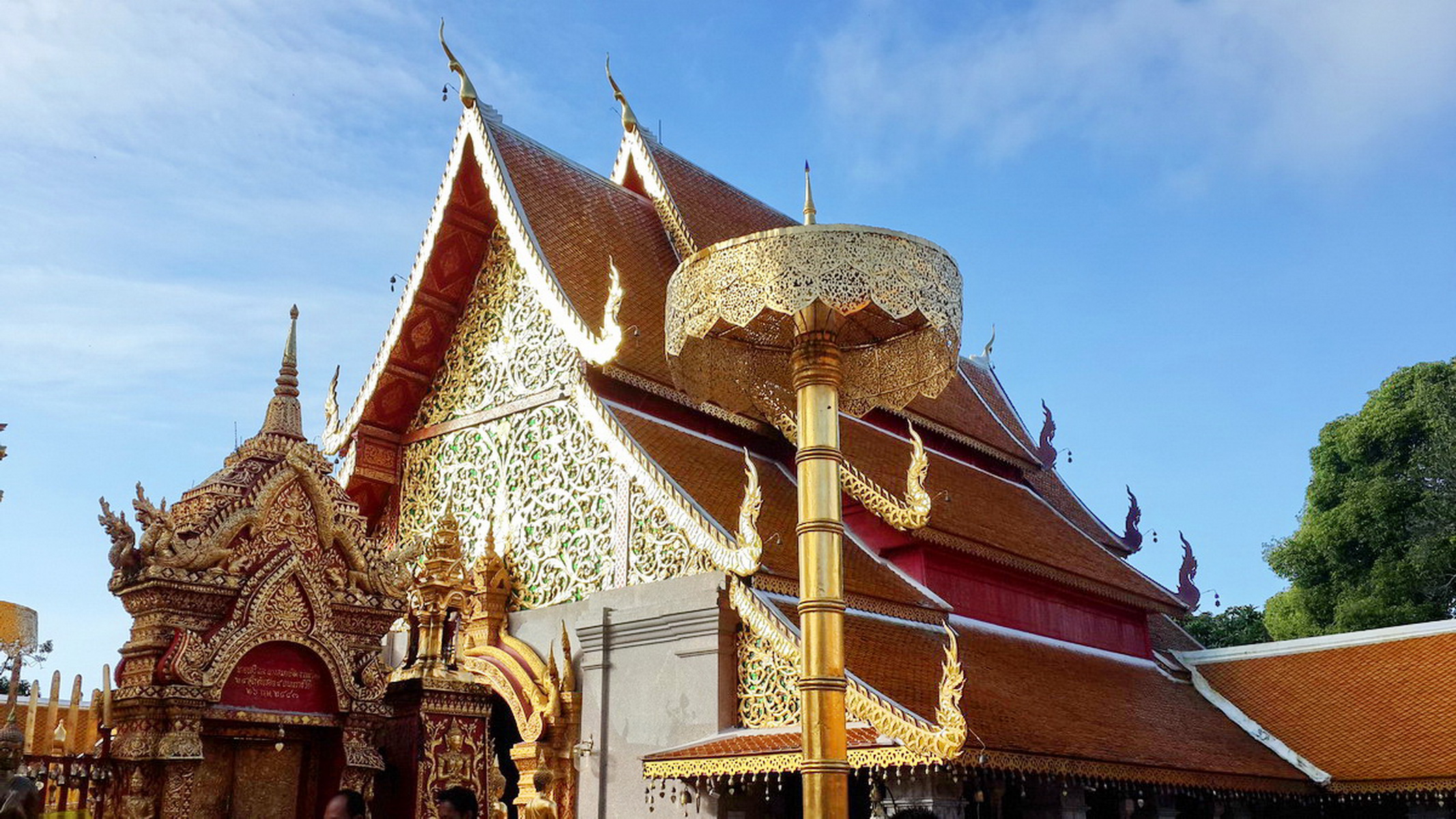
Phra That Doi Suthep Temple is simply referred to as Doi Suthep Temple by most people.
The Phra That Doi Suthep Temple is one of the most important temples of Northern Thailand. Built as a Buddhist monastery in 1383 it is still a working monastery today. Funds raised by donations and the lift fee go to support the monks living there and for maintenance of the various temple buildings. The architecture, statues, murals and shrines seen here are nothing short of breathtaking.
According to this legend, a Buddha relic, which some say glowed, magically replicated just before it was about to be enshrined in the big chedi at Suan Dok Temple. The “cloned” relic was placed on the back of a sacred white elephant, which was allowed to roam where-ever it wanted.
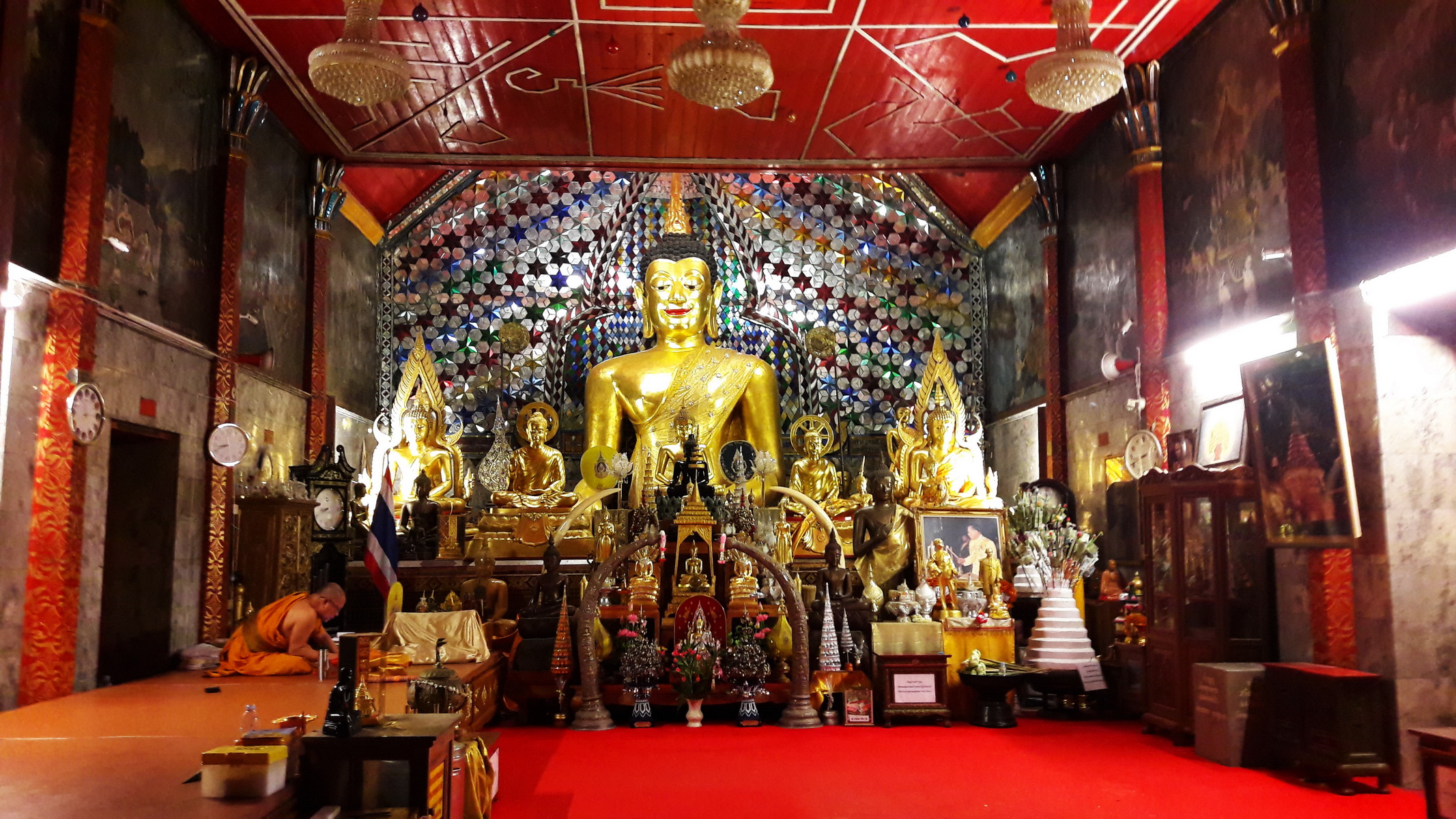
The elephant eventually climbed to the top of Suthep Mountain, trumpeted three times, turned around three times, knelt down and died. This was taken as a sign that this was the spot where the relic wanted to be, so King Ku Na built the original of the chedi on Doi Suthep at the end of 14th century.
The Phra That Doi Suthep Temple grew and changed in the 600 years since its founding. In particular, it was extensively renovated in the economic “boom” years of the early 1990s. From our admittedly western viewpoint, a lot of the charm has been lost as everything was covered in granite and gold. However, the temple remains an important sight that first-time visitors to Chiang Mai shouldn’t miss.
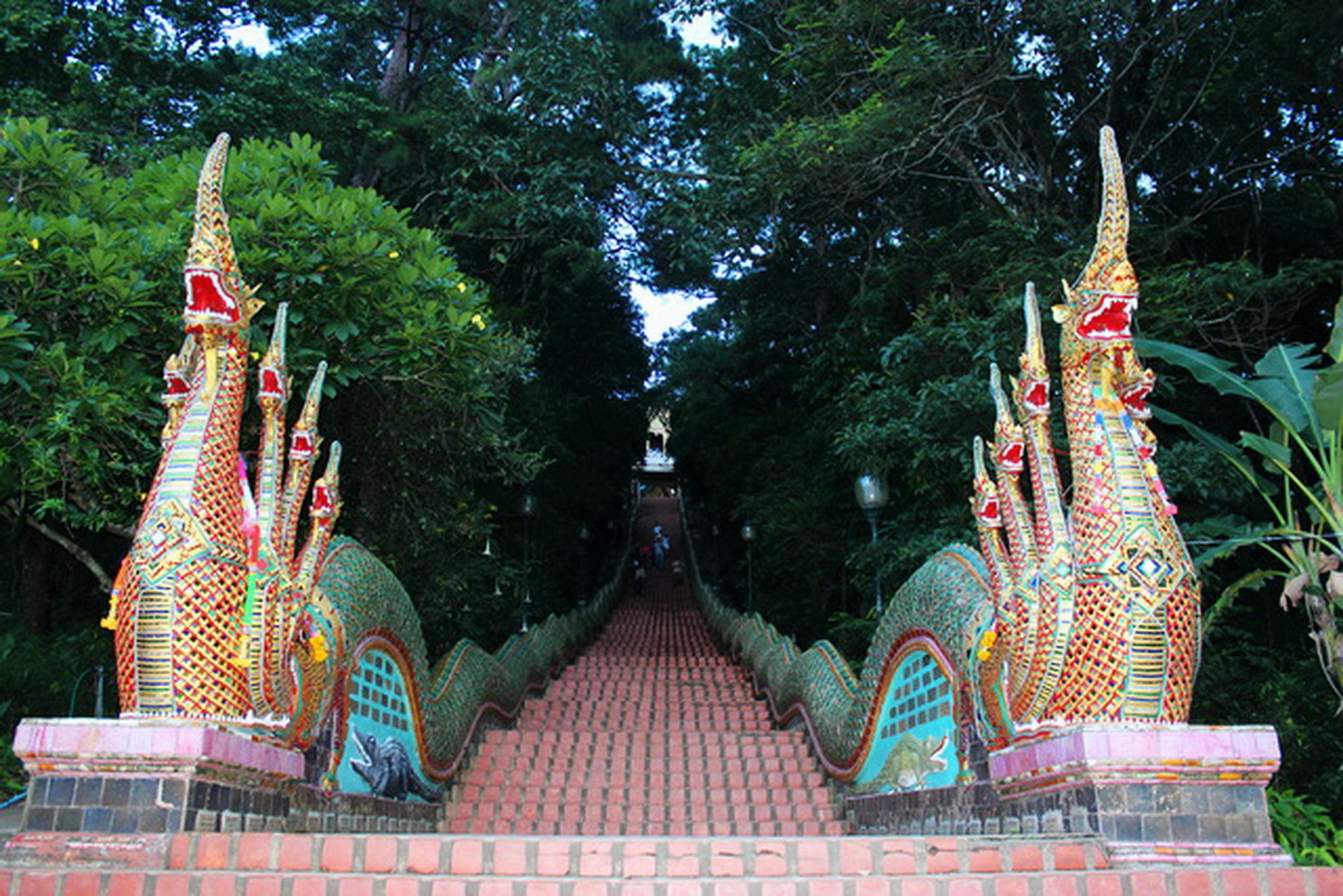
Starting with a walk up the 300 steps of the intricately carved mythical Naga Serpent Staircase you begin to marvel at the splendour of your surroundings. The way up is flanked by trees and Naga snake figures. All visitors must take off their shoes and dressed appropriately to enter the temple terrace. No shorts allowed and shoulders must be covered, there are clothes available for rent.
For those that do not fancy the 300 step climb up to the complex, you can go up by elevator for 30B and walk down the staircase when you have finished.
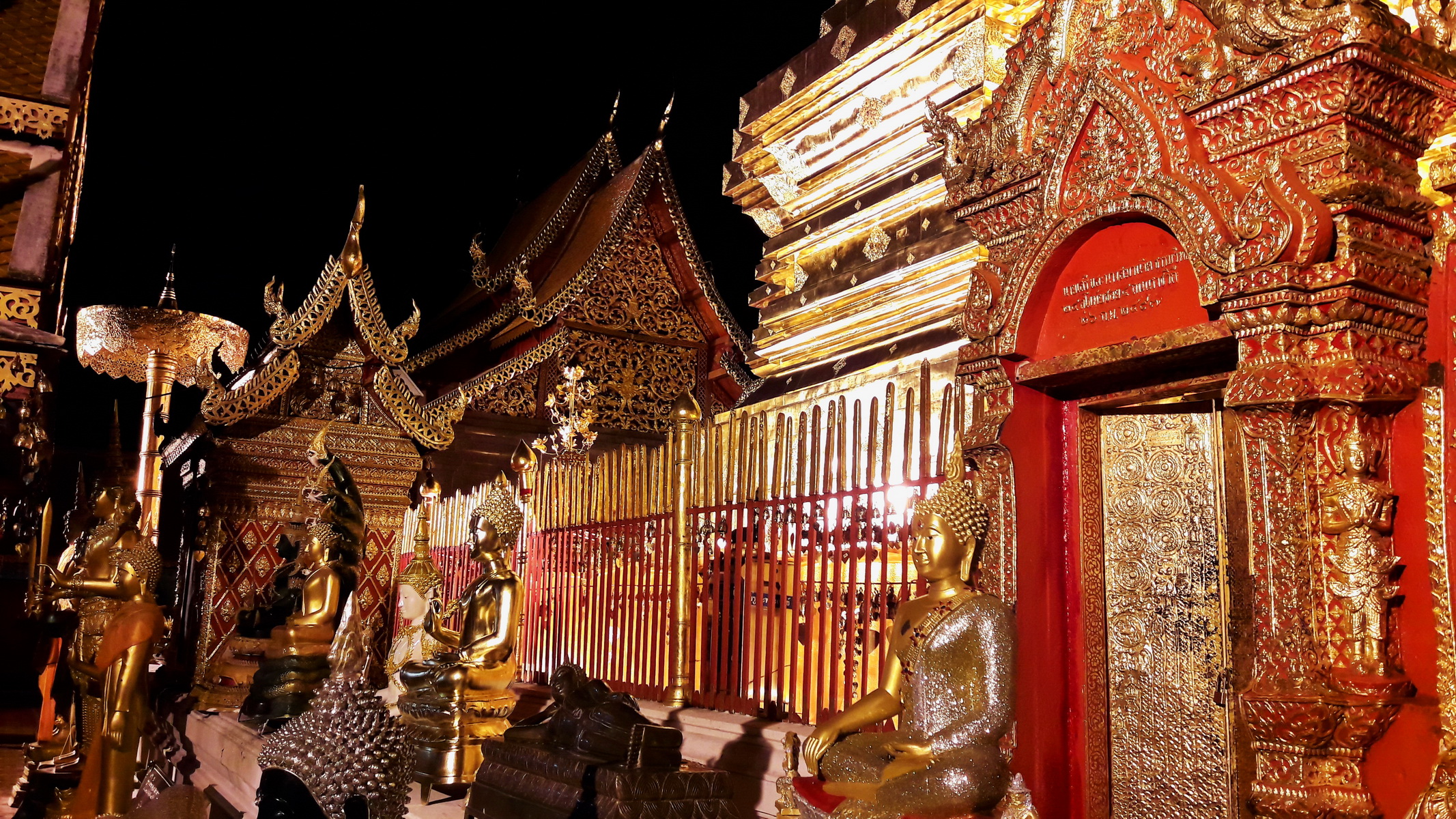
Enclosed by a frescoed cloister, the upper terrace is home to a tightly-packed complex of small shrines, bells, golden umbrellas and Buddha statues. Shoes must be removed and shoulders must be covered before entering this sacred area.
In the center of the upper terrace is the great chedi, a 16th-century expansion of the 14th-century original. The dazzling gold-plated temple is modeled on Wat Phra That Haripunjaya in Lamphun, formerly the greatest temple in the Chiang Mai region.
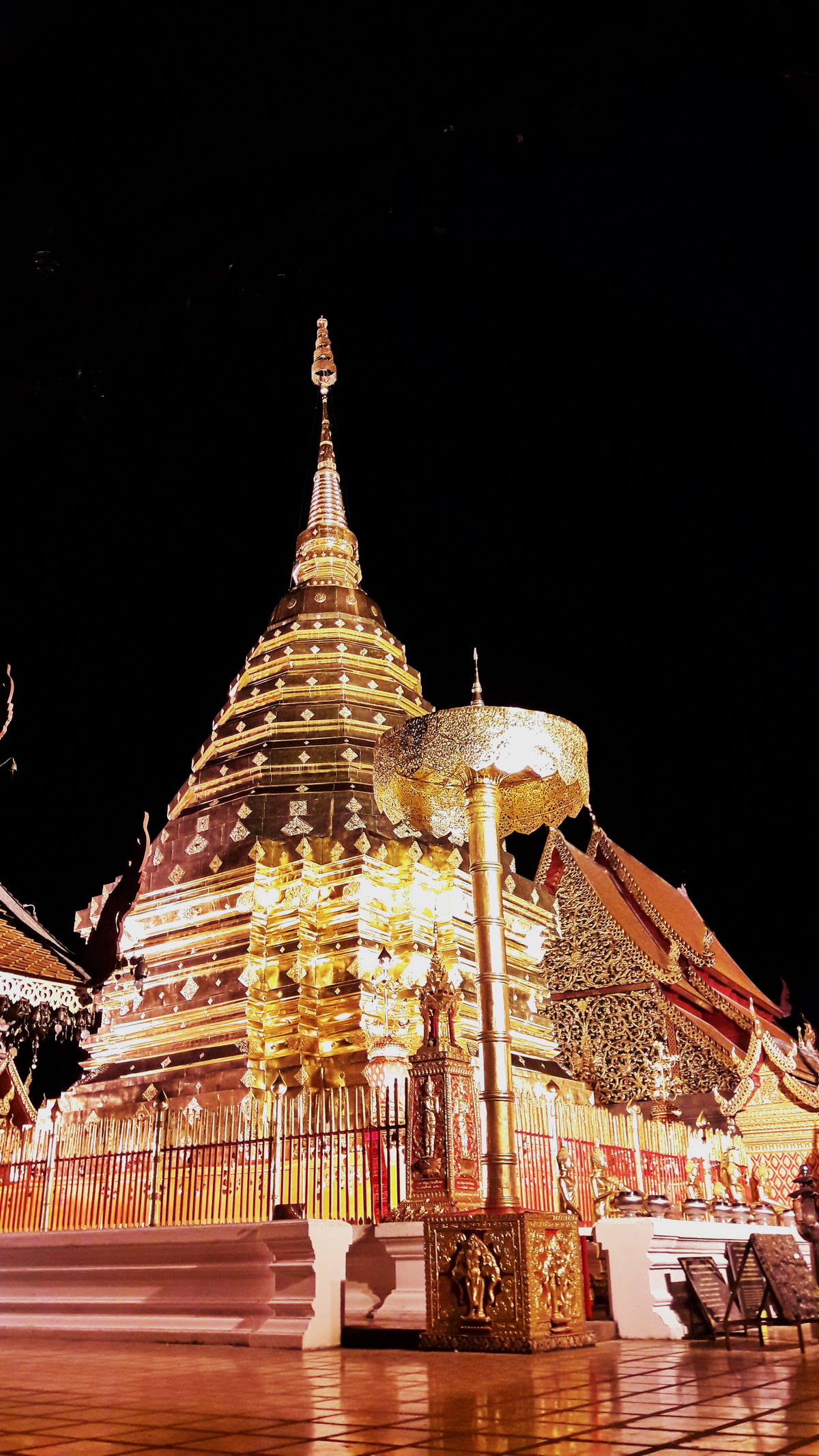
The original copper plated Chedi is the most sacred area of the temple grounds. Within the site are the temples and statues, bells, and the museum, and shrines. Wat aspects came about from the development of Buddhism and Hinduism. A model of the Emerald Buddha and the statue of the Hindu god Ganesh can be found in the temple and you can see the sights of Chiang Mai on the other side of the temple.
Surrounding the circular walk around the Chedi in the inner temple are a variety of Buddha statues with different poses. Made of various materials semi precious stones, the buddhas are grouped into stunning displays filled with texture, color and sizes.
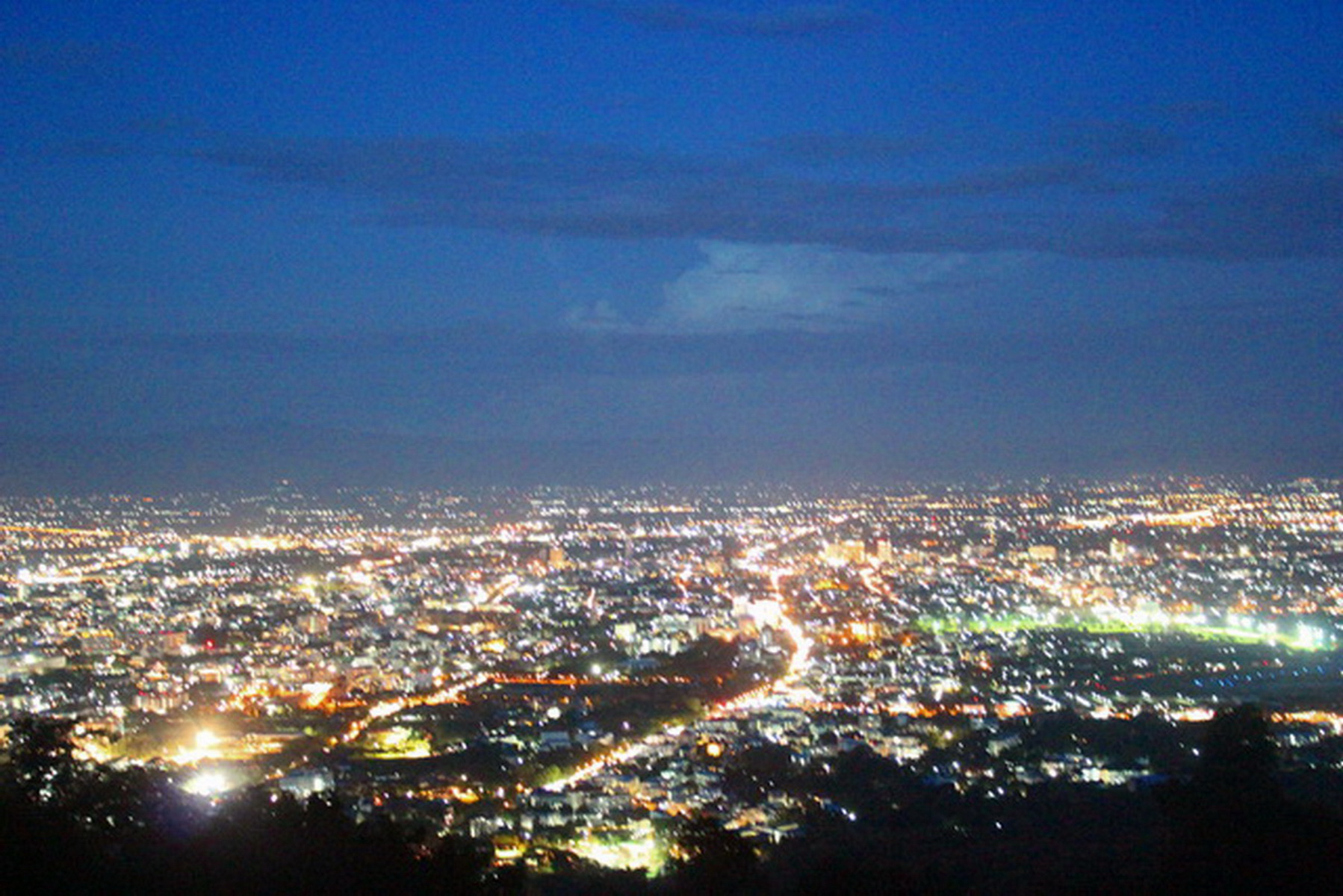
Outside of the main temple, there are several small shrines, rock gardens, monuments and other artifacts to see outside of the main temple itself. To the right side of the main temple compound is a large viewing area with magnificent views of Chiang Mai below.
Doi Suthep mountain rises about 1000m (3,542 ft) above sea level; there are fine views over the city of Chiang Mai to be had from the temple’s lower terrace. The terrace is surrounded by large bells that are rung by pilgrims to bring good luck. On the northwest corner of the terrace is a statue of the legendary elephant who chose the site of the temple.
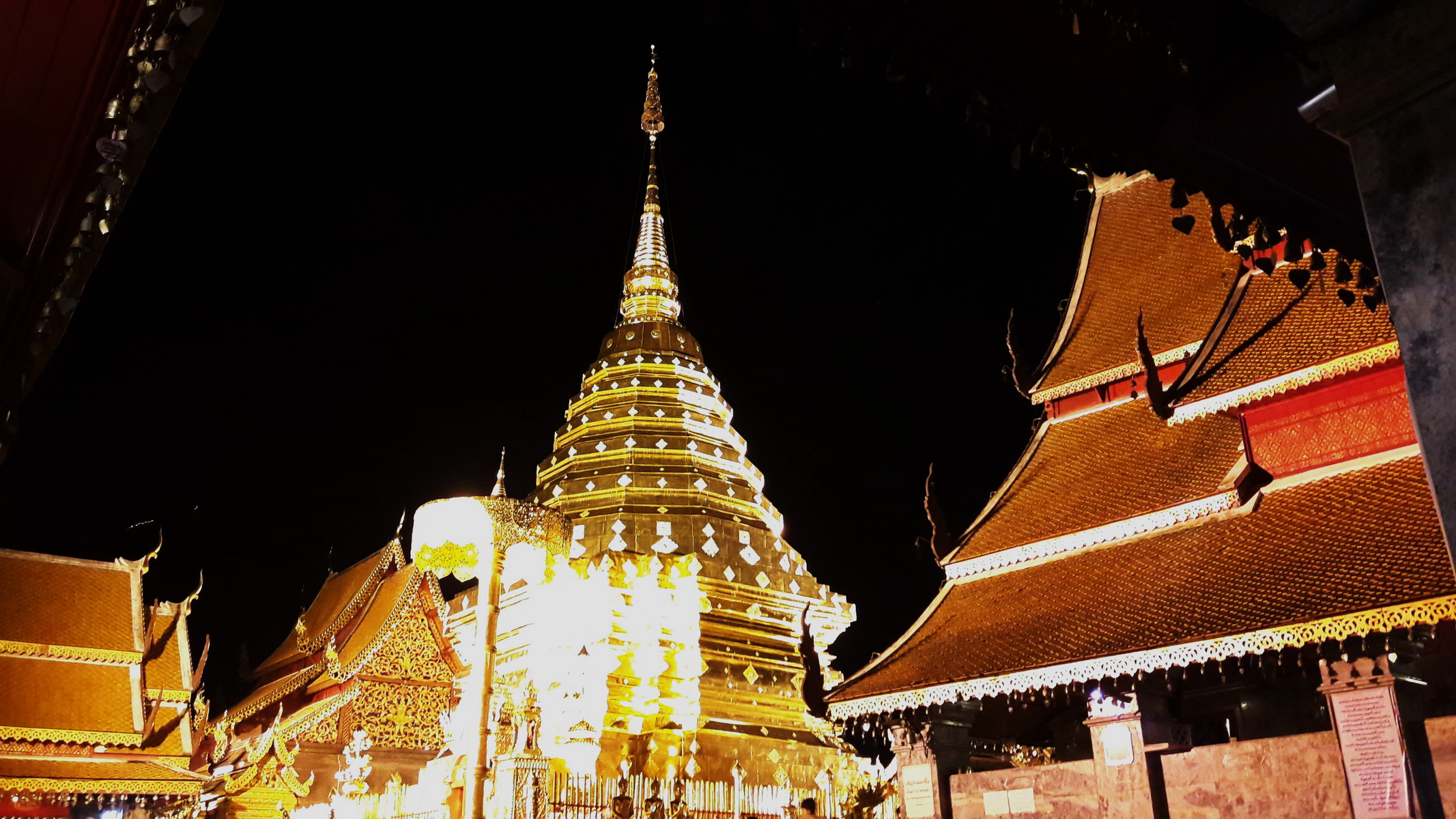
On leaving Doi Suthep temple area descend the Naga Serpent staircase back down to the car park area. At the bottom of the staircase you will find several souvenir shops and a throng of vendors selling local handicrafts.
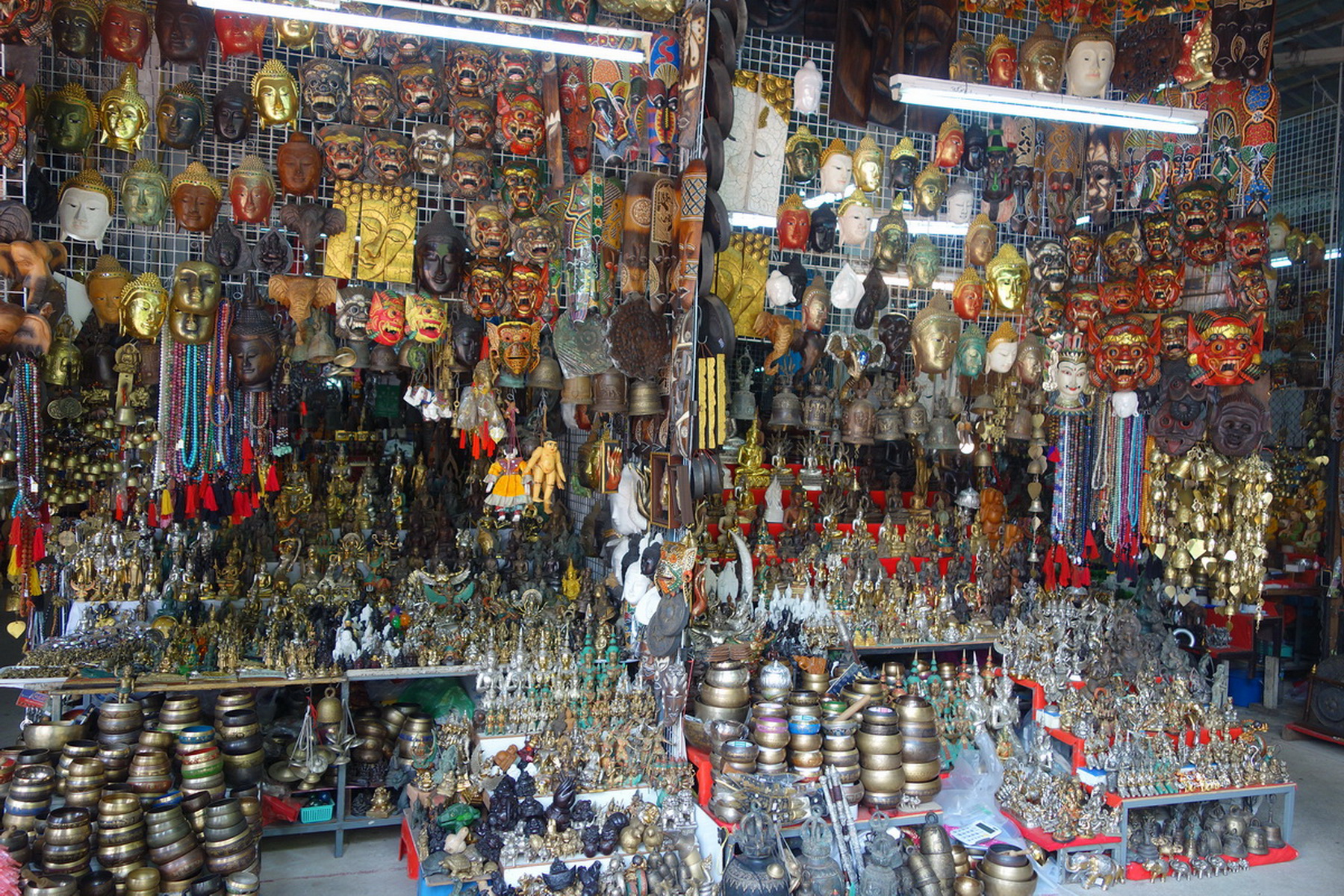
How to get to Phra That Doi Suthep Temple ?
The temple lies roughly 15 kilometres from the city, and can be reached by road. Originally it took a 5 hour climb up the mountain to get to the Temple but thanks to 1,000 volunteers who built the current road the journey now only takes about 40 minutes. The best way to go up is buy flagging down a red Songthaew truck taxi. If you are only going to the main Temple and back it will take you about 40-45 minutes each way from Chiang Mai and will cost 200 Baht around trip. We recommend hiring a taxi for a full half day tour. Either option will wait for you while you look around and you pay at the end.
If you wish to have a tour guide the whole time, Budget tours to Doi Suthep like this one stop by the Pha That Doi Suthep temple, Bhubing Royal Palace and Doi Pui Hmong Village on 4 hour trip for about 950 – 1000 Baht person.
======== Related Posts ========
Three Kings Monument
Three Kings Monument: Unveil Chiang Mai's PastThe Three Kings Monument stands proudly in front of the old town hall on Phra Pok Klao Road. This revered site attracts both locals and tourists who come to pay their respects. The central figure is King Mengrai, flanked...
Doi Pui Hmong Hill Tribe Village
Doi Pui Hmong hill tribe village is set amongst the peaks of Doi Suthep Doi Pui Hmong Hill Tribe Village: Exploring Cultural Richness in Chiang Mai's Mountains Doi Pui Hmong hill tribe village or Meo hill tribe village is accessible via the mountainous road from...
Wat Pha Lat
Wat Pha Lat : Unveiling the Enchanting Hidden Gem of Chiang MaiA Comprehensive Guide to Wat Pha Lat: The Serene Forest Temple Wat Pha Lat, or the "Monk's Trail Temple," is an enchanting, hidden gem nestled amidst the verdant forest of Chiang Mai, Thailand. This...

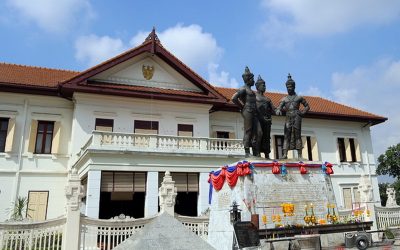
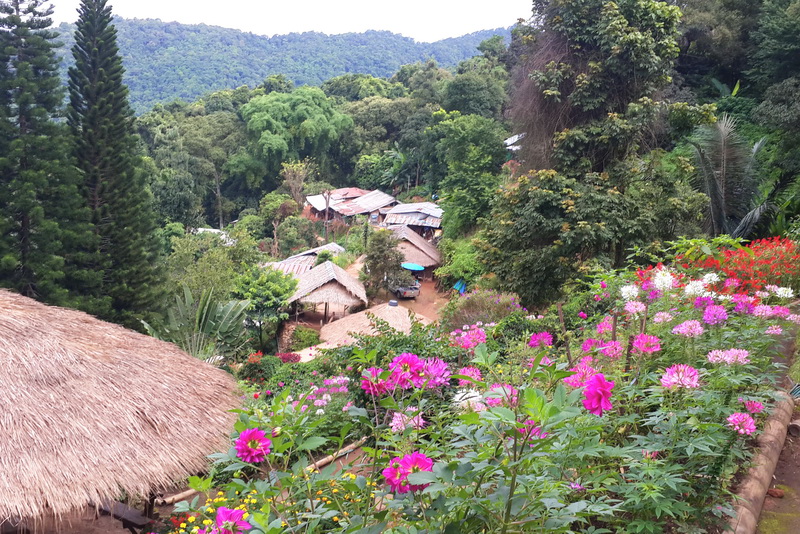
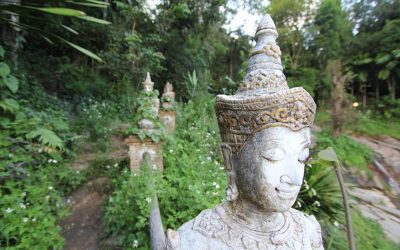
Trackbacks/Pingbacks